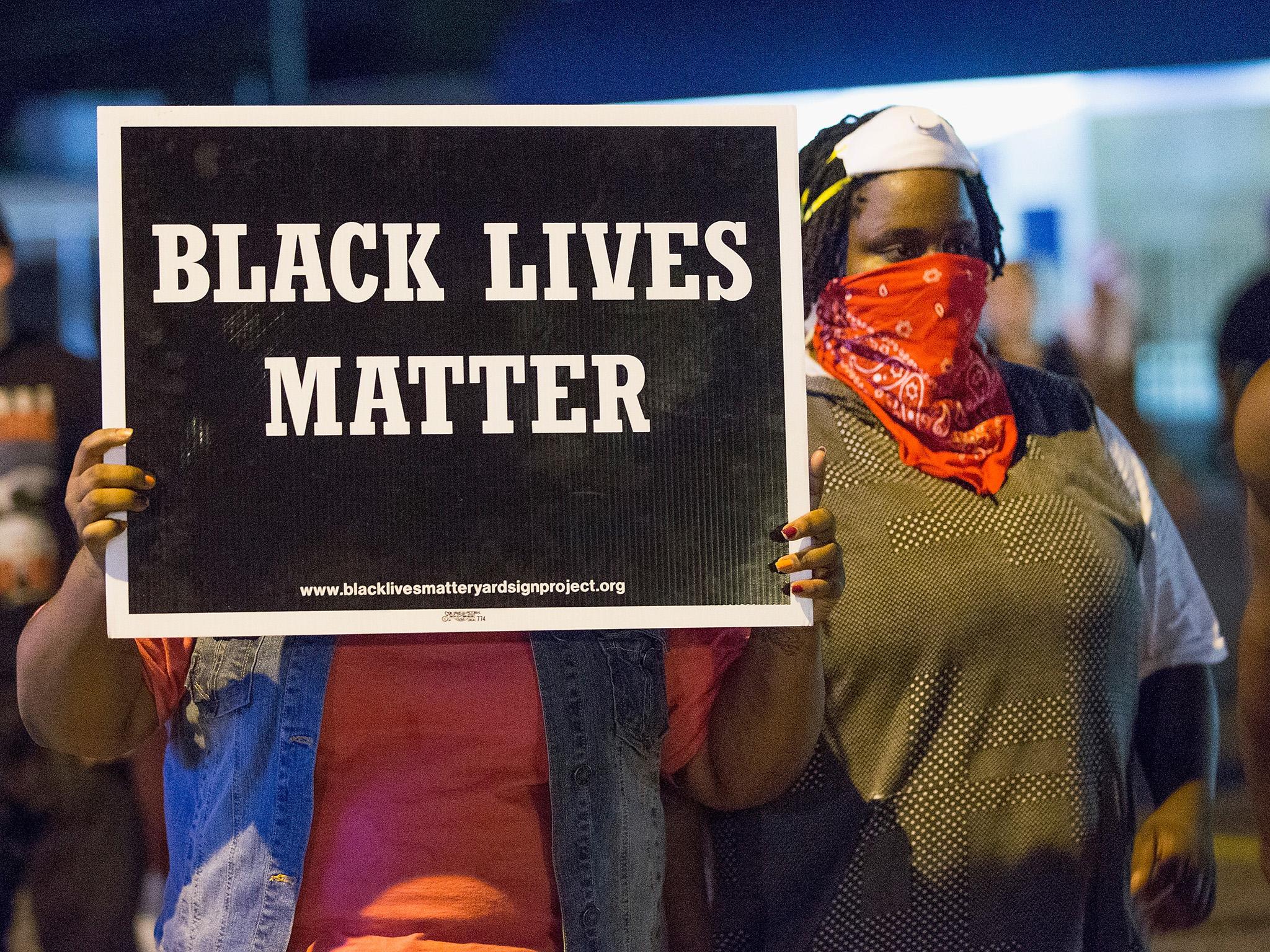Russians 'bought Facebook adverts' targeting Black Lives Matter
Fake posts from supporters were aimed at people living in Ferguson and Baltimore

Your support helps us to tell the story
From reproductive rights to climate change to Big Tech, The Independent is on the ground when the story is developing. Whether it's investigating the financials of Elon Musk's pro-Trump PAC or producing our latest documentary, 'The A Word', which shines a light on the American women fighting for reproductive rights, we know how important it is to parse out the facts from the messaging.
At such a critical moment in US history, we need reporters on the ground. Your donation allows us to keep sending journalists to speak to both sides of the story.
The Independent is trusted by Americans across the entire political spectrum. And unlike many other quality news outlets, we choose not to lock Americans out of our reporting and analysis with paywalls. We believe quality journalism should be available to everyone, paid for by those who can afford it.
Your support makes all the difference.At least one of the targeted Facebook adverts bought by Russians during the 2016 presidential election campaign attacked the Black Lives Matter movement and specifically targeted areas where riots had taken place.
Earlier this month Facebook admitted it probably had sold $100,000 (£74,000) worth of adverts to fake accounts operated from Russia.
A post written by the social media giant’s chief security officer Alex Stamos said the adverts were mostly focused on promoting disunity rather than attacking or promoting any particular candidates and around 25 per cent were geographically targeted.
The company later agreed to give congressional investigators copies of the pro-Trump adverts purchased as part of the wider probe into whether Russia influenced the election, and to what extent the Trump campaign knew about it.
Facebook also said it would hand over copies of the 3,000 adverts to Special Counsel Robert Mueller, who is conducting a separate investigation into possible collusion between the Trump campaign and the Kremlin.
But now it has emerged that of these geographically targeted adverts, some were destined for audiences in Ferguson, Missouri and Baltimore, Maryland, which have been the scene of major riots over the death of black people at the hands of police officers in recent years.
The death of 18-year-old of Michael Brown, who was shot by former police officer Darren Wilson, prompted a widescale protest which germinated into the Black Lives Matter movement – a national organisation dedicated to fighting for better treatment of African-Americans in the US justice system.
The adverts were presented as Facebook posts which appeared to support the movement but in a way that implied the group was a potential threat to residents in Baltimore and Ferguson, CNN reported.
Other posts in the cache of advertising released by Facebook, from a period between June 2015 and May 2017, show the Russian adverts supported a range of right-wing causes associated with Donald Trump’s campaign, such as gun rights and claiming that American democracy was under threat from the millions of illegal immigrants from Central and South America who are currently living in the US.
The adverts reportedly appeared at some point between late 2015 and early 2016.
Former CIA officer and security analyst Steve Hall told CNN: “This is consistent with the overall goal of creating discord inside the body politic here in the United States, and really across the West.
“It shows they the level of sophistication of their targeting. They are able to sow discord in a very granular nature, target certain communities and link them up with certain issues.”
The adverts were purchased through Facebook’s self-service ad model, which allows buyers to target their ad to a specific area or a specific demographic.
Senator Mark Warner, the highest ranking Democrat on the Senate Intelligence Committee, said this week that the aim of the adverts “was to sow chaos”.
He said: "In many cases, it was more about voter suppression rather than increasing turnout."
Join our commenting forum
Join thought-provoking conversations, follow other Independent readers and see their replies
Comments